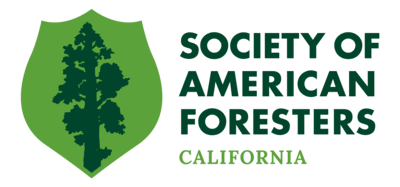[youtube https://www.youtube.com/watch?v=5hLkEKFhuKY]
Index to Interview Questions:
00:22 – Tell us a little about your background.
01:44 – How did you become interested in forestry as a career?
02:20 – Tell us a little about your education as a forester. Does it differ between Australia and the USA?
03:19 – Why did you choose to pursue the academic side of the forestry profession?
05:58 – What differences did you notice in the landscape when you came to the United States?
07:08 – Do you have any mentors or heroes?
08:18 – Are there any students that stand out in your memory?
09:56 – How was your role as a professor of silviculture unique?
11:06 – Please describe some of your research projects.
12:57 – What is the relationship between UC Berkeley and the Blodgett Forest Research Station?
15:27 – What aspects of your international research and collaboration did you value most? Challenges?
18:14 – Which of your publications have been most effective in informing the practice of forestry?
19:41 – What are your thoughts about climate change ?
21:32 – What kind of challenges will forest managers face relating to climate change?
23:22 – Activities with the US/Canada Committee on Forest Carbon Standards.(2008-2010)
25:42 – Talk about the importance of defining terminology when dealing with international groups.
26:40 – Activities with the Sustainable Forestry Initiative External Review Panel.
(2008-2012)
28:52 – Activities as Chair, Jackson State Advisory Group (2008-2011)
31:10 – Give us an overview of the litigation in connection with Jackson State Demonstration Forest
33:36 – Activities with the California Forest Products Commission (2002-2008)
34:37 – Activities with the Forest Foundation Board (since 2009)
35:55 – Tell us about your role in representing the SAF with congressional testimony and staff briefings.
39:18 – When and why did you join Society of American Foresters?
40:43 – Tell us about some positions you held with SAF.
48:48 – Talk about SAF in the past and how to maintain relevancy.
55:17 – What would you tell a young person who is considering a career in forestry or natural resources?
56:56 – What do you see as the future of forestry and natural resource management?
1:00:38 – In a perfect world, what would be your vision of an ideal forest ?
1:03:11 – What is forestry and what is a forester?
1:04:28 – Thoughts about the Pacific Southwest Forest and Range Experiment Station.
1:05:14 – How has forestry changed over the past few decades?
1:07:46 – Has the role of the forester expanded in terms of both technical and social aspects?
1:08:15 – How have climate change issues altered the core technical and social skills of the forestry profession ?
1:09:44 – How do you prepare people to handle the issues of change?
1:11:44 – What is needed in the forestry profession to keep up with changes in societal values?
1:15:12 – How have public and professional attitudes regarding the management of public lands changed?
1:18:00 – What is the problem with public land management by litigation rather than professional judgment?
1:21:05 – What are your thoughts about the change in rate of harvest on public lands?
1:30:40 – What are some of the benefits and challenges of a forest land base with diverse ownership?
1:34:37 – Share some general thoughts about SAF, forestry and change.
-END-
